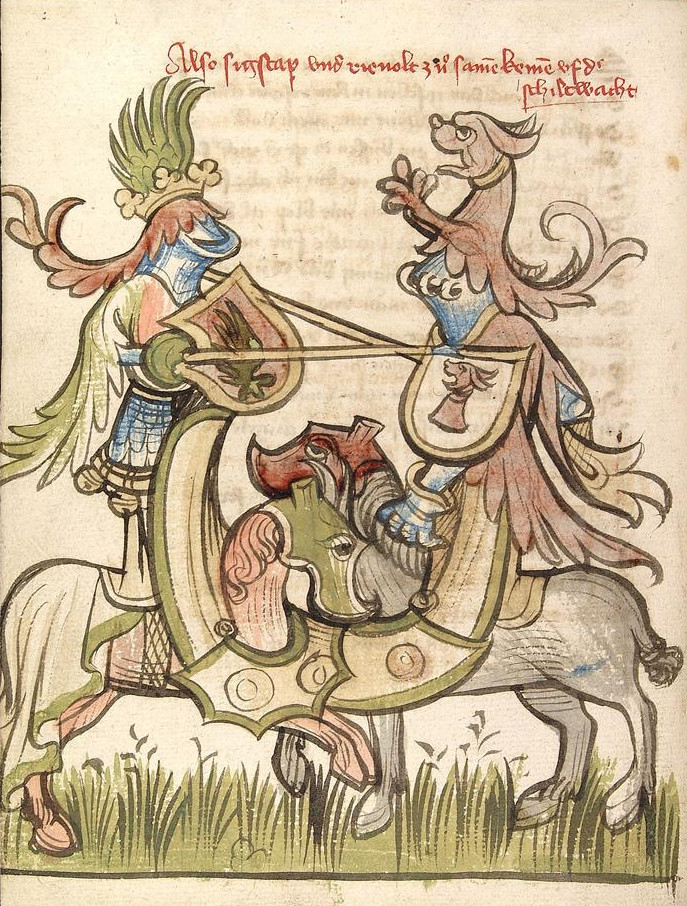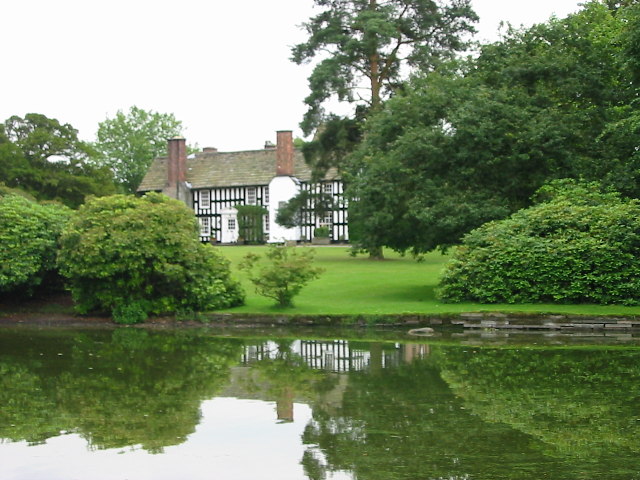|
Charles Stanhope, 8th Earl Of Harrington
Charles Augustus Stanhope, 8th Earl of Harrington (9 January 1844 – 5 February 1917), known as Viscount Petersham from 1866 to 1881, was a British peer and successful polo player. Biography Early life Harrington was the son of Charles Stanhope, 7th Earl of Harrington, and Elizabeth Still de Pearsall. Polo He learned polo in Malta while in the Cheshire Yeomanry, a regiment of which he became Lieutenant-Colonel in command from 1899 to 1905 and Honorary Colonel thereafter. In 1885 he played at the back in the Gloucestershire team that won the County Cup. Harrington won the Hurlingham Champion Cup in 1892 with Sussex County and the Rugby Open Cup with Cheshire. His rotund figure and flowing beard were a memorable image on British polo grounds and an obvious choice for caricature in Vanity Fair. Harrington was the inventor of the papier-mâché goal posts and was President of the County Polo Association and the first President of the Polo Pony Society. He was responsible for th ... [...More Info...] [...Related Items...] OR: [Wikipedia] [Google] [Baidu] |
Elvaston Castle
Elvaston Castle is a stately home in Elvaston, Derbyshire, England. The Gothic Revival castle and surrounding parkland is run and owned by Derbyshire County Council as a country park known as Elvaston Castle Country Park. The country park has of woodlands, parkland and formal gardens. The centrepiece of the estate is the Grade II* Listed Elvaston Castle. The castle has been neglected and is in need of restoration. Due to its condition, the building is not open to the public, and since 2008 has been listed on the Buildings at Risk Register.Elvaston Castle Country Park - official Derbyshire County Council site /ref> Derbyshire ... [...More Info...] [...Related Items...] OR: [Wikipedia] [Google] [Baidu] |
Jousting
Jousting is a martial game or hastilude between two horse riders wielding lances with blunted tips, often as part of a tournament (medieval), tournament. The primary aim was to replicate a clash of heavy cavalry, with each participant trying to strike the opponent while riding towards him at high speed, breaking the lance on the opponent's shield or jousting armour if possible, or unhorsing him. The joust became an iconic characteristic of the knight (stock character), knight in Romantic medievalism. The participants experience close to three and a quarter times their body weight in G-forces when the lances collide with their armour. The term is derived from Old French , ultimately from Latin "to approach, to meet". The word was loaned into Middle English around 1300, when jousting was a very popular sport among the Anglo-Normans, Anglo-Norman knighthood. The synonym tilt (as in tilting at windmills) dates . Jousting is based on the military use of the lance by heavy cavalry. ... [...More Info...] [...Related Items...] OR: [Wikipedia] [Google] [Baidu] |
1844 Births
In the Philippines, it was the only leap year with 365 days, as December 31 was skipped when 1845 began after December 30. Events January–March * January 15 – The University of Notre Dame, based in the city of the same name, receives its charter from Indiana. * February 27 – The Dominican Republic gains independence from Haiti. * February 28 – A gun on the USS ''Princeton'' explodes while the boat is on a Potomac River cruise, killing two United States Cabinet members and several others. * March 8 ** King Oscar I ascends to the throne of Sweden–Norway upon the death of his father, Charles XIV/III John. ** The Althing, the parliament of Iceland, is reopened after 45 years of closure. * March 9 – Giuseppe Verdi's opera ''Ernani'' debuts at Teatro La Fenice, Venice. * March 12 – The Columbus and Xenia Railroad, the first railroad planned to be built in Ohio, is chartered. * March 13 – The dictator Carlos Antonio López becomes first President of Pa ... [...More Info...] [...Related Items...] OR: [Wikipedia] [Google] [Baidu] |
Deputy Lieutenants Of Derbyshire
Deputy or depute may refer to: * Steward (office) * Khalifa, an Arabic title that can signify "deputy" * Deputy (legislator), a legislator in many countries and regions, including: ** A member of a Chamber of Deputies, for example in Italy, Spain, Argentina, or Brazil. ** A member of a National Assembly, as in Costa Rica, France, Pakistan, Poland or Quebec. ** A member of the Dáil Éireann (Lower House of the parliament of the Republic of Ireland) ** A member of the States of Guernsey or the States of Jersey elected by a parish or district ** Deputy (Acadian), a position in 18th-century Nova Scotia, Canada * Deputy Führer, a title for the deputy head of the Nazi Party * A subordinate ** Deputy premier, a subordinate of the Premier and next-in-command in the cabinet of the Soviet Union and its successor countries, including: *** First Deputy Premier of the Soviet Union *** Deputy Premier of the Soviet Union, a subordinate of the Premier and the First Deputy Premier and third-in-c ... [...More Info...] [...Related Items...] OR: [Wikipedia] [Google] [Baidu] |
Gawsworth Old Hall
Gawsworth Old Hall is a Grade I listed building, listed English country house, country house in the village of Gawsworth, Cheshire, England. It is a timber-framed house in the Cheshire black-and-white style. The present house was built between 1480 and 1600, replacing an earlier Norman architecture, Norman house. It was probably built as a courtyard house enclosing a Quadrangle (architecture), quadrangle, but much of it has been demolished, leaving the house with a U-shaped plan. The present hall was owned originally by the Fitton family, and later by the Gerards, and then the Stanhopes. Since the 1930s it has been in the possession of the Richards family. Raymond Richards collected a number of items from other historic buildings and incorporated them into the hall. Notable residents have included Mary Fitton, perhaps the "Shakespeare's sonnets#The Dark Lady, Dark Lady" of Shakespeare's sonnets, and Samuel Johnson (dramatist), Samuel "Maggoty" Johnson, a playwright des ... [...More Info...] [...Related Items...] OR: [Wikipedia] [Google] [Baidu] |
King George V
George V (George Frederick Ernest Albert; 3 June 1865 – 20 January 1936) was King of the United Kingdom and the British Dominions, and Emperor of India, from 6 May 1910 until his death in 1936. Born during the reign of his grandmother Queen Victoria, George was the second son of Albert Edward, Prince of Wales, and was third in the line of succession to the British throne behind his father and his elder brother, Prince Albert Victor. From 1877 to 1892, George served in the Royal Navy, until the unexpected death of his elder brother in early 1892 put him directly in line for the throne. On Victoria's death in 1901, George's father ascended the throne as Edward VII, and George was created Prince of Wales. He became king-emperor on his father's death in 1910. George's reign saw the rise of socialism, communism, fascism, Irish republicanism, and the Indian independence movement, all of which radically changed the political landscape of the British Empire, which itself reached ... [...More Info...] [...Related Items...] OR: [Wikipedia] [Google] [Baidu] |
Edward VII
Edward VII (Albert Edward; 9 November 1841 – 6 May 1910) was King of the United Kingdom of Great Britain and Ireland and Emperor of India, from 22 January 1901 until his death in 1910. The second child and eldest son of Queen Victoria and Prince Albert of Saxe-Coburg and Gotha, and nicknamed "Bertie", Edward was related to royalty throughout Europe. He was Prince of Wales and heir apparent to the British throne for almost 60 years. During the long reign of his mother, he was largely excluded from political influence and came to personify the fashionable, leisured elite. He travelled throughout Britain performing ceremonial public duties and represented Britain on visits abroad. His tours of North America in 1860 and of the Indian subcontinent in 1875 proved popular successes, but despite public approval, his reputation as a playboy prince soured his relationship with his mother. As king, Edward played a role in the modernisation of the British Home Fleet and the reorganis ... [...More Info...] [...Related Items...] OR: [Wikipedia] [Google] [Baidu] |
Earl Of Harrington COA
Earl () is a rank of the nobility in the United Kingdom. The title originates in the Old English word ''eorl'', meaning "a man of noble birth or rank". The word is cognate with the Scandinavian form ''jarl'', and meant "chieftain", particularly a chieftain set to rule a territory in a king's stead. After the Norman Conquest, it became the equivalent of the continental count (in England in the earlier period, it was more akin to a duke; in Scotland, it assimilated the concept of mormaer). Alternative names for the rank equivalent to "earl" or "count" in the nobility structure are used in other countries, such as the ''hakushaku'' (伯爵) of the post-restoration Japanese Imperial era. In modern Britain, an earl is a member of the peerage, ranking below a marquess and above a viscount. A feminine form of ''earl'' never developed; instead, ''countess'' is used. Etymology The term ''earl'' has been compared to the name of the Heruli, and to runic ''erilaz''. Proto-Norse ''eri ... [...More Info...] [...Related Items...] OR: [Wikipedia] [Google] [Baidu] |
The South Notts Hunt Crossing The River Trent At Soke Bardolph 1890
''The'' () is a grammatical article in English, denoting persons or things already mentioned, under discussion, implied or otherwise presumed familiar to listeners, readers, or speakers. It is the definite article in English. ''The'' is the most frequently used word in the English language; studies and analyses of texts have found it to account for seven percent of all printed English-language words. It is derived from gendered articles in Old English which combined in Middle English and now has a single form used with pronouns of any gender. The word can be used with both singular and plural nouns, and with a noun that starts with any letter. This is different from many other languages, which have different forms of the definite article for different genders or numbers. Pronunciation In most dialects, "the" is pronounced as (with the voiced dental fricative followed by a schwa) when followed by a consonant sound, and as (homophone of pronoun ''thee'') when followed by a v ... [...More Info...] [...Related Items...] OR: [Wikipedia] [Google] [Baidu] |



.jpg)


.jpg)

.png)